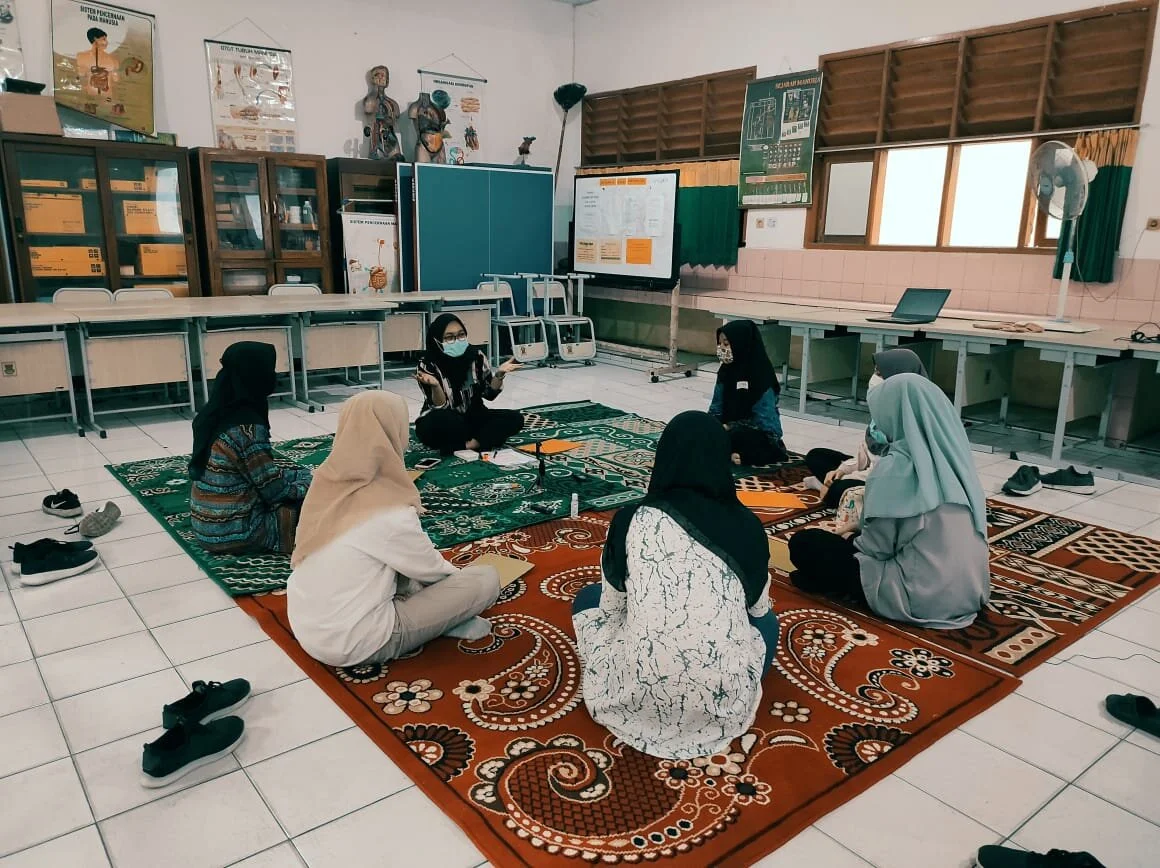Following our baseline study in 2019, Untold Research conducted an endline evaluation of UNICEF’s intervention menstrual hygiene management (MGM) programming in Tangerang, Indonesia. Students, teachers, and principals were interviewed to determine the effectiveness of the program as well as evaluate physical changes to the school property relating to hand washing and bathroom facilities.
Perhaps one of the most profound findings from the research is around the frequency with which adolescent girls exposed to the intervention materials now change their menstrual pads. Before the intervention, these girls most often changed their pads twice a day (47%), far less than the recommended every 3-5 hours; guidance to which very few adhered (13%).
A majority of adolescent girls in Tangerang know infrequent menstrual pad changing can come with many uncomfortable consequences, like irritation (76%) and itchiness (54%) and nearly all (98%, up from 95%) know extra care must be taken to maintain cleanliness during menstruation. However, more education is needed around some of the more severe consequences, like infection (44%), including urinary tract infections which can lead to pain with urination (12%) and even kidney infections if left untreated.
Nevertheless, the number of girls now following the prescribed 3-5 hour guidance nearly tripled after being exposed to the intervention materials (36%, up from 13%) and impressive decreases were observed among those no longer changing their pads twice a day (35%, down from 47%), once a day (9%, down from 15%), or when it is dirty (7%, down from 12%). No such positive improvements are observed among the girls who were not exposed to the intervention materials.
“On the first day, I have a lot, [so I change my pad] maybe three times, but in the last days, maybe two are enough. So, it depends on the amount of fluid.” – 9th grade girl, Intervention school
“Because in one day, we cannot just use one or two because I think it’s better if we use it only for 3 to 4 hours.” - 9th grade girl, Intervention school


